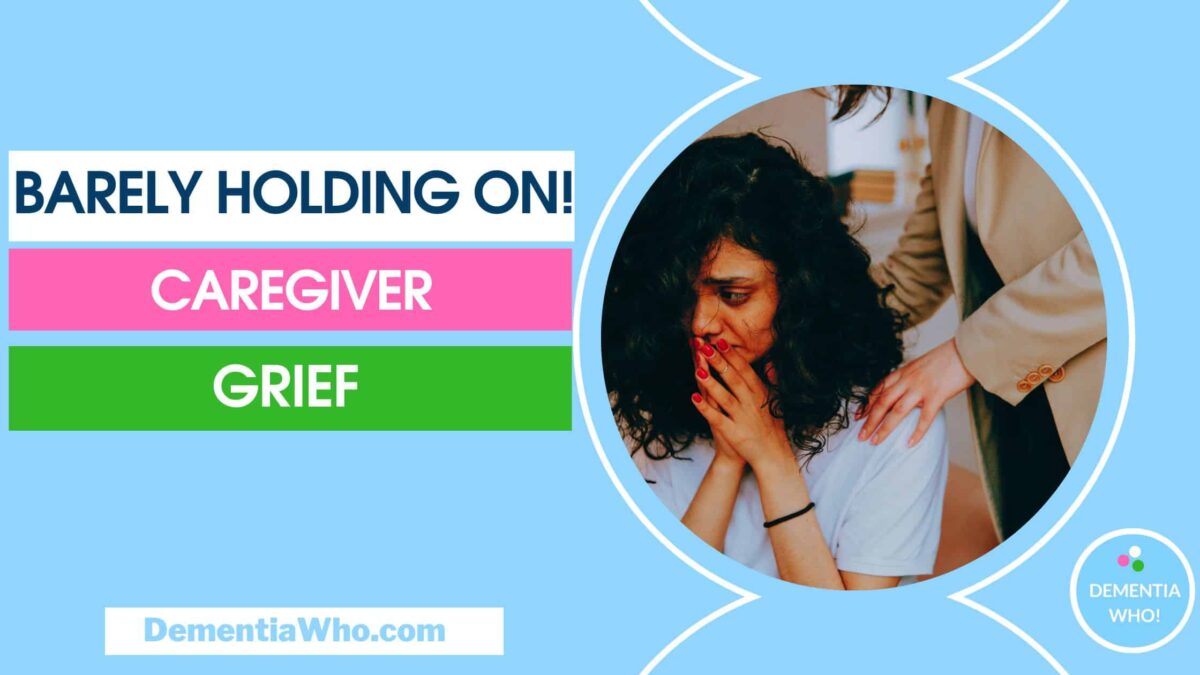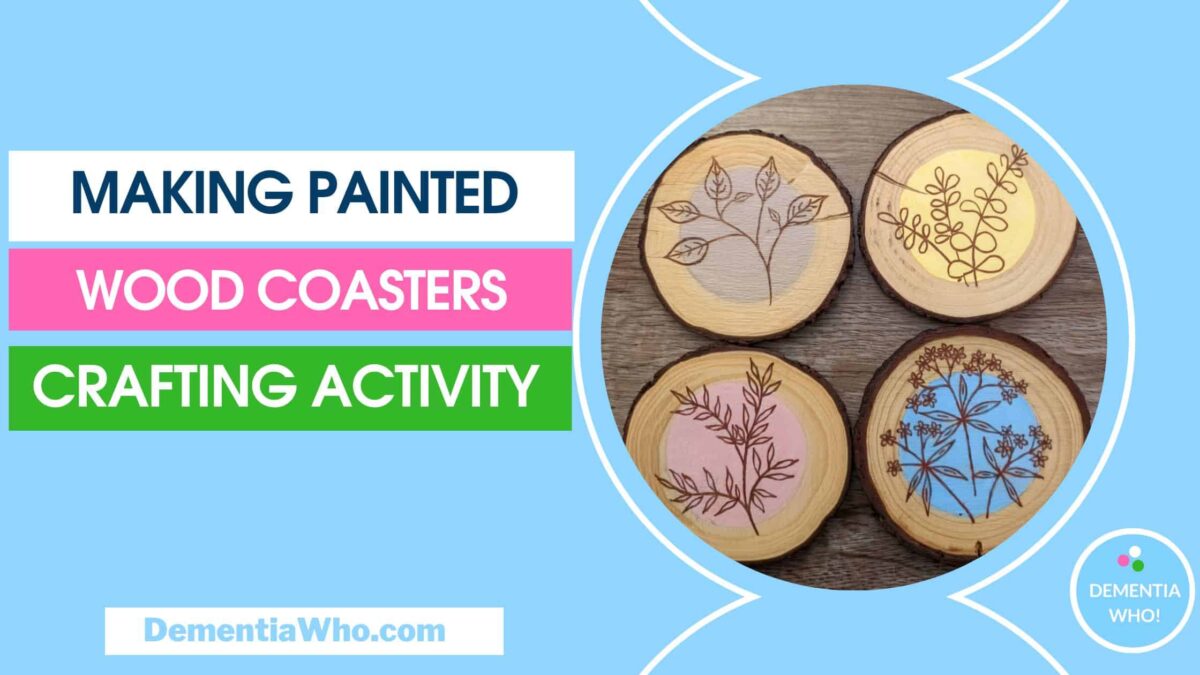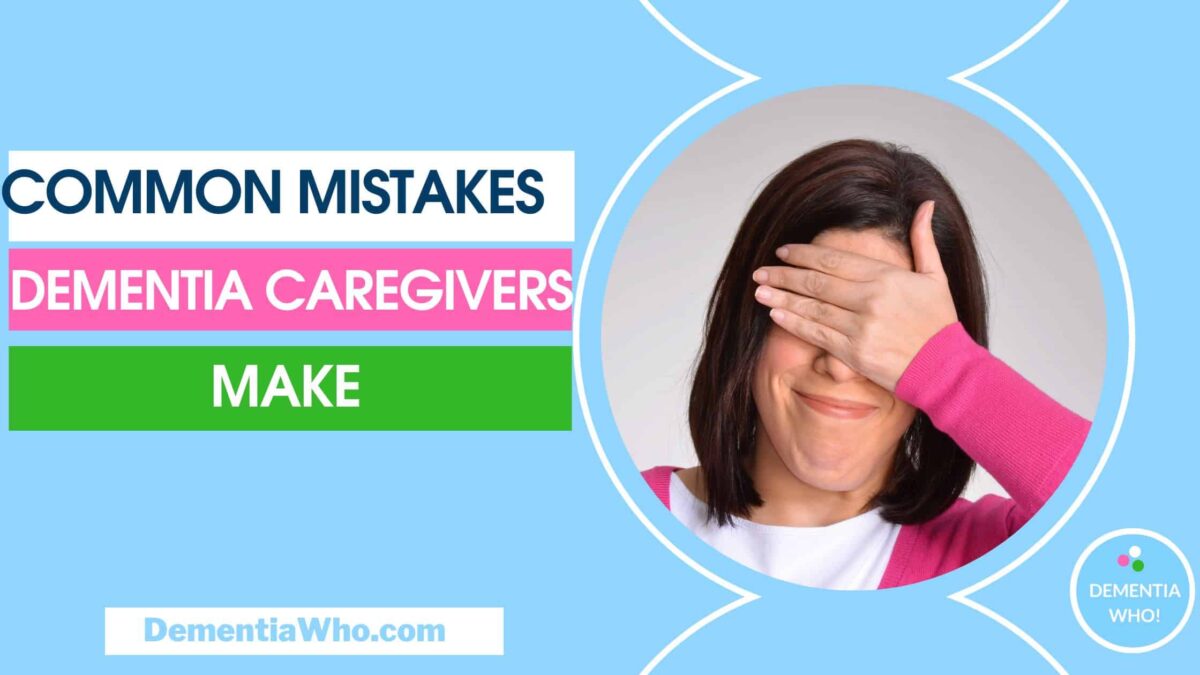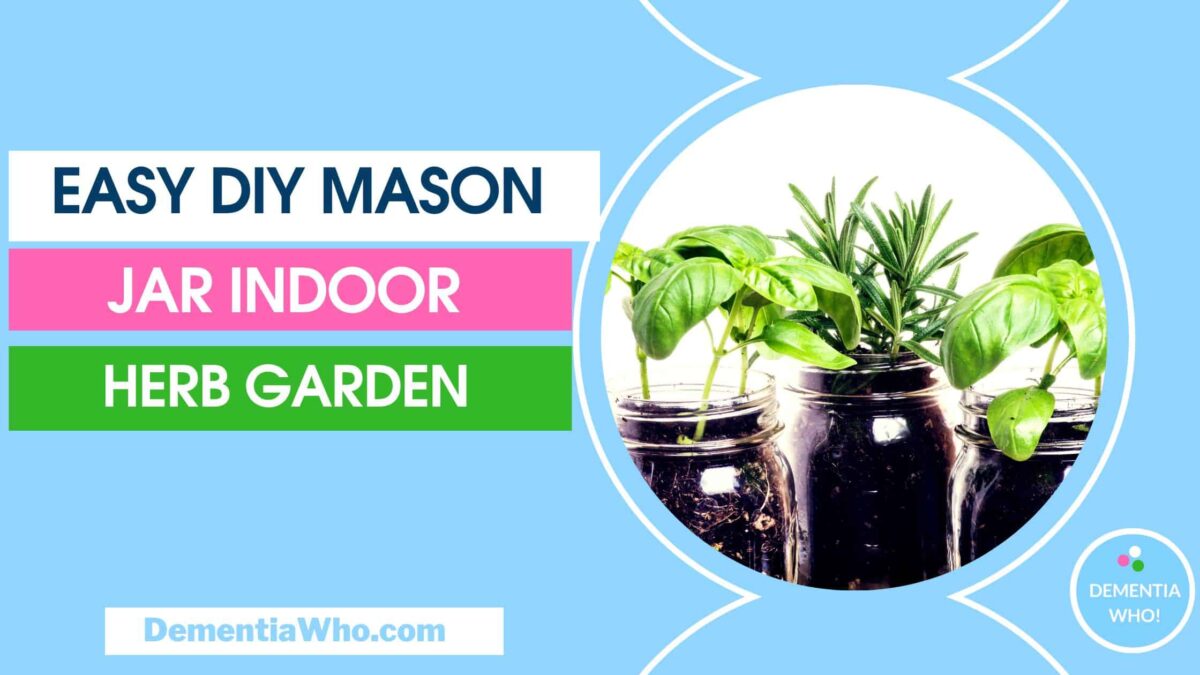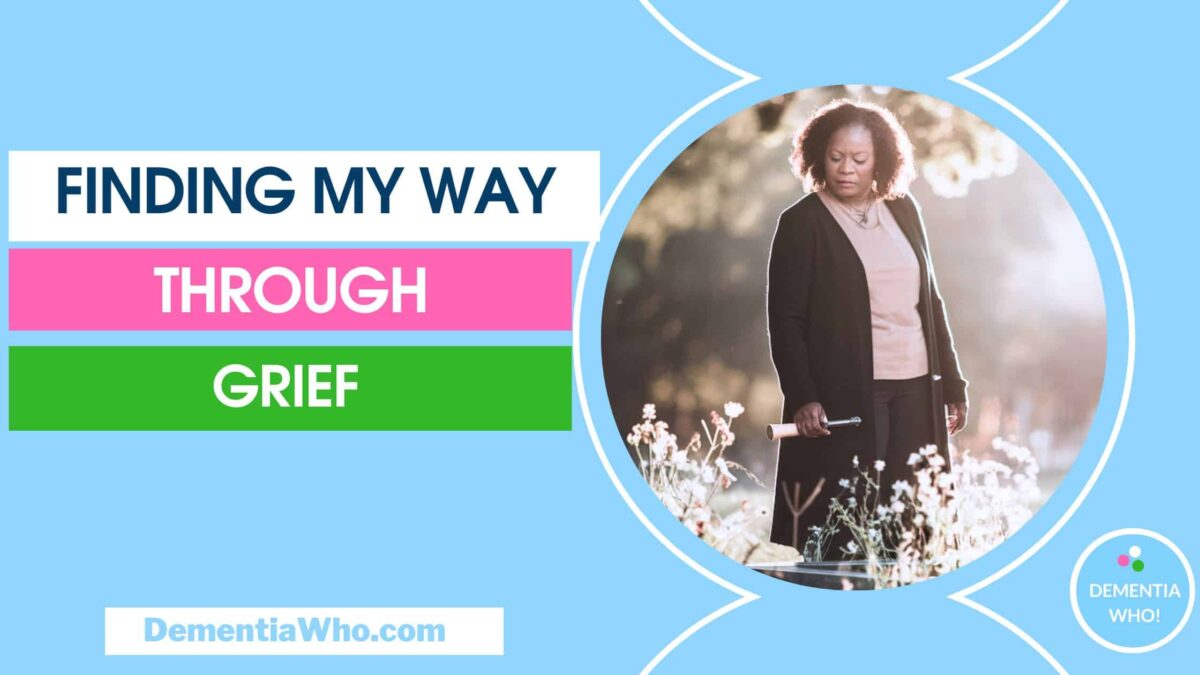A lot is made of emotional and psychological pain associated with caregiving, rightly so. Still, little is said about the physical pain associated with caring for a loved one with dementia.
The health & wellbeing of dementia caregivers is made up of many areas – financial, environmental, emotional, psychological and physical impacts of caring for a loved one.
Many factors can determine how you are physically impacted whilst caring – whether the role is hands-on, full time or part-time, the mobility, abilities & cooperation of your loved one, if you have support at home, or whether you have access to tools, training and equipment that support your loved one.
We all know the adage of looking after yourself first so that you’re able to look after your own. But, generally, caring for someone with dementia has more of an impact on your physical health as you prioritise your loved one’s health over your own.
How does caregiving affect your physical health? Most dementia caregivers experience muscular pain & strains, back pain, dental pain, accidental injuries caused by your loved one with dementia. The anxiety and stress of being on guard all the time while looking after someone with dementia can show up physically as your body reacts to that stress.
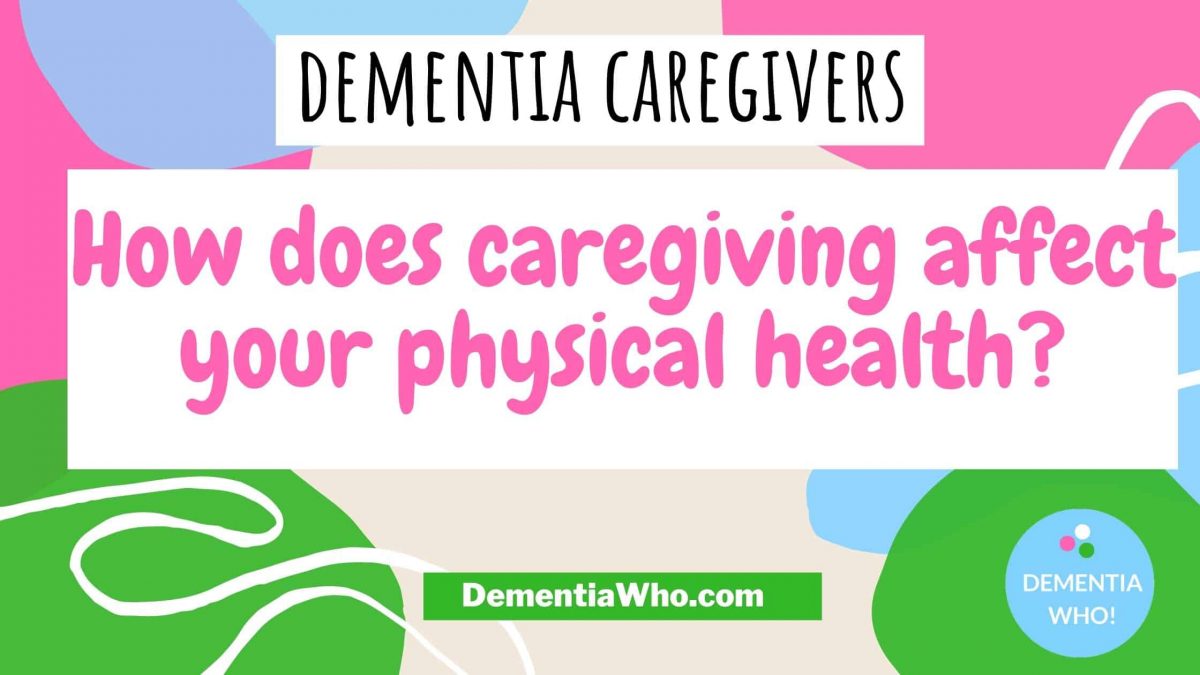
If you like this blog, why not consider subscribing?
Back Pain
This is the number one physical pain that most dementia caregivers experience, primarily from supporting loved ones with coordination, balance issues, or mobility issues from dementia. You may, as a caregiver, need to help transfer someone from a chair, use a hoist, support someone climbing the stairs, help someone dress & wash, help them after a fall (if not injured), all of which contribute to back pain. Even bending over and regularly reaching as you help your loved one with tasks like dressing can cause lower back pain if performed incorrectly.
Paid caregivers are given safety training to ensure that their health and safety risks are minimised, but for dementia caregivers, we learn as we go, watching youtube videos getting advice from nurses or other caregivers. If you’re lucky, your doctor can help or, refer you to a physiotherapist or musculoskeletal expert. Social Services may help by referring you to a safe handling course (if this option is even available), but these days most of these are video based.
If you do this alone or with little support or training, is it any surprise that we end up with injuries to our back?
Useful advice on how to lift someone safely can be found here
How to move, lift and handle someone else – NHS (www.nhs.uk)
Lifting Techniques for Home Caregivers – OrthoInfo – AAOS
Strains & Muscular pain
Just as back pain is a common injury for caregivers, you’ll also find that you develop muscular pain or injuries from straining your shoulders, neck, wrists, knees etc. I developed a version of tennis elbow when I tried to help lift my mum from her bed to an assisted standing device called a steadi. It took months to improve with the help of a physiotherapist and the medication prescribed. Every time you overreach trying to support, pull someone into a sitting position, help someone up the stairs or transfer someone into a sitting position on your own will inevitably result in some form of injury if completed in the wrong way. Good posture and form when bending, lifting, reaching, pulling or pushing can help reduce injury. But the reality is that risks are greater for family/home caregivers when you’re rushed, unfit, tired from lack of sleep, without a supporting person to help you or lack proper training.
Anxiety and Stress
Anxiety and stress can manifest in your physical health. When caregiving for someone with dementia, you’re constantly on guard, ensuring they are safe and not at risk. You may need to be near them all the time to help with their anxiety and help motivate them if they are dealing with apathy and depression. Being on call 24/7 gets to you eventually. I’ll give you a few brief examples of how anxiety affects me. I have trouble sleeping at night. I developed vertigo. I overeat, especially at night and keep gaining weight. I have palpitations at night, and my latest is that I’m now grinding my teeth, according to my dentist & I’m suffering from pain from my jaws as a result.
But for you, anxiety and stress may show up in different forms. You may get raised blood pressure high cholesterol; you may eat more or less, develop migraines, stomach issues, drink more, smoke more, all leading to potentially harmful effects to your body. So learning to control that anxiety is key, either working with a counsellor, using self-help tools like meditation or mindfulness, talking therapies, relaxation apps, taking respite or reducing your caring role etc. Whatever you use to destress to help reduce the physical side effects on your body.
Accidental Caregiver Injuries
Caring for someone with dementia can be challenging. Their care needs will vary depending on what type of dementia they have and how quickly it progresses. Some loved ones may be susceptible to hallucinations or suffer from involuntary movements that could mean that you could sustain an accidental injury if they hit out. The worry or concern of such an incident can also lead to more anxiety and stress for a caregiver, so you may feel you’re on a revolving wheel with little changing.
It would help if you talked to your doctor or memory clinic about these developments before they become more serious. They are experienced with all stages of dementia and can recommend different strategies to keep you safe.
Dental Pain
We all know how to look after our teeth, but many obstacles can prevent us from maintaining them, resulting in problems developing and causing pain with our teeth.
It would help if you had regular checkups and cleaning, but in reality, it isn’t easy to get to the dentist in the first place. The first obstacle can be whether we have anyone to look after our loved ones. Covid has also made booking appointments almost impossible, taking months to get. Then we have financial considerations on whether we can afford it due to living on a much lower income.
You might adjust your dental routine to support your loved one with dementia by doing simple things like moving from electric to a manual brush so they can mimic your actions. Statistically, more plaque is removed with an electric toothbrush than a manual and some days. You can be too exhausted to complete your dental routine. It all builds up. Problems left untreated can result in pain, and worse hidden issues can develop into long term problems like gum disease linked to heart disease.
The issues around the cost of dental treatment (carer’s allowance doesn’t provide free NHS treatment), timing (getting respite to have someone look after your loved one) and lack appointments (covid backlog) or access (no NHS lists open) all compound to make it so much harder for unpaid caregivers to get the treatment they need eventually leading to pain for the caregiver.
Steps that you can take to improve your dental health can be found here Caring for my teeth and gums | Oral Health Foundation guide
So what can you do to try to reduce physical pain?
You can find tips in my post ‘8 Self Care Tips to avoid Physical Pain & Caregiver Injuries’ but prevention is key. The early you start to address the issues around your physical health the more likely you are to retain it.
One of the biggest constraints for dementia caregivers is the financial cost of getting help. That could be paying privately for dental work before things get worse, purchasing equipment to support muscle strain, like grab rails, commodes etc. or equipment to exercise or gym membership, paying for private physiotherapy or home adaptations that can ease the burden of caring when not provided by your local authority.
Getting a carers assessment can help, but it is a hit and miss affair depending on where you live. The services offered vary regionally and the schemes and finances available at that local authority. You can also request a referral to an occupational therapist who can assess what adaptations or changes can be made to support you better and signpost you to organisations or support resources to help you improve your health and well being. But as is always with caregiving, these resources and support have to be hard-fought.
Organisational resources like Age UK, Carers UK, Carers Trust, Admiral Nurses, or local carers groups can help, be by your side and advocate for you.
Taking care of your own health despite all the obstacles in place is essential. After all, who will look after your loved one if you go down?


